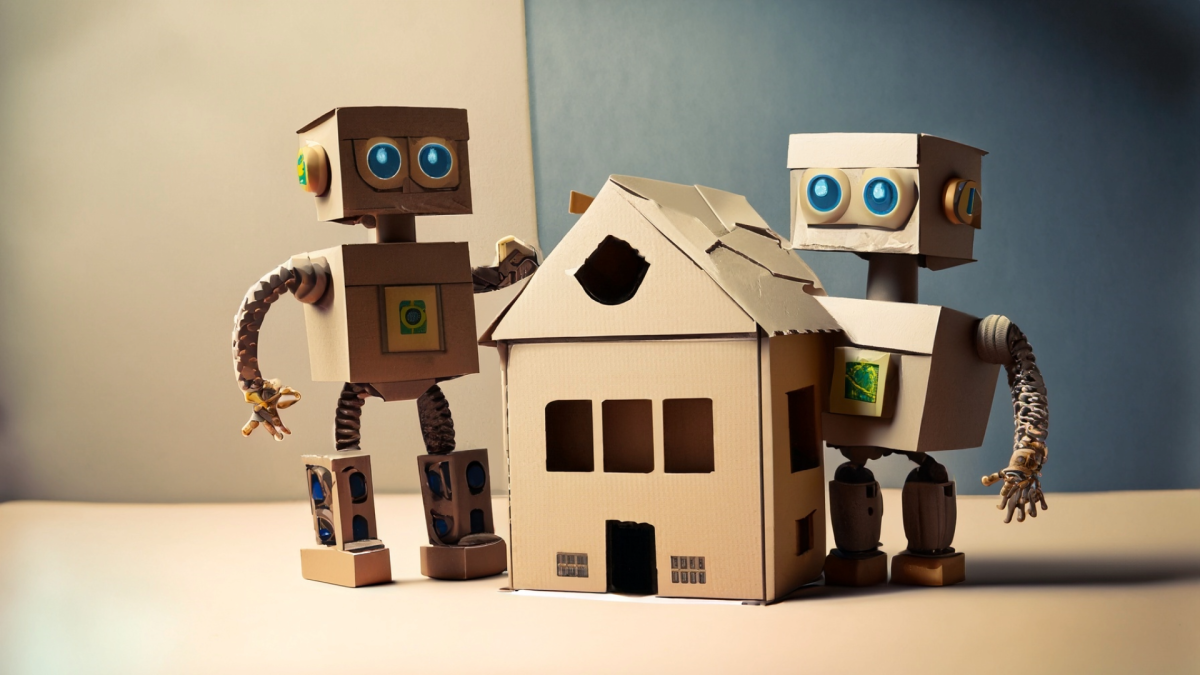
Grades:
6th Grade, 7th Grade, 8th Grade, 9th Grade, 10th Grade, 11th Grade, 12th Grade
Be a part of the humanitarian effort and teach students how to create a fully functioning 3D printed prosthetic arm for a client in need. This lesson walks you through the process in a slideshow

Featured
Sphero Rocket Payload Mission
Grades:
9th Grade, 10th Grade, 11th Grade, 12th Grade
This lesson uses Sphero's "Rocket Payload" activity with the Outer Space Mat. The full lesson includes information on rocket payload, a Sphero coding challenge, a NASA link to read, optional questions

Grades:
3rd Grade, 4th Grade
Encouraging students, from a young age, to think about their interests, dreams and goals lets them see possibilities for the future. As students listen to their thoughts and put those thoughts into

Grades:
Kindergarten
Students will practice reading sight words using Sphero Indi coding paths. Students will design and then create a path for Indi to follow. They will be given a set of sight words and will lay one

Grades:
Kindergarten, 1st Grade
In this lesson, students will practice “counting on” from any given number using Sphero Indi coding paths. Students will create a path made of at least 4 or more tiles for Indi to follow. They will be

Grades:
3rd Grade
This third-grade STEM lesson introduces students to solar energy, the heat island effect, and data analysis. Students will use temperature gauges to measure different areas of the school at various

Featured
Best Class Plant
Grades:
1st Grade, 2nd Grade, 3rd Grade
This lesson is centered around the book, The World's Best Class Plant. It is intended for 1st-3rd grade. Ideally, teachers would use this lesson at the beginning of the year so they can have their

Grades:
1st Grade, 2nd Grade, 3rd Grade
In this lesson, students design, build and test model candy cars made from simple materials. They measure the changes in distance and travel by the addition of revision of design features. Students

Grades:
1st Grade, 2nd Grade, 3rd Grade
This maze activity builds all sorts of skills. Students will be improving spatial skills, logic skills, problem solving skills, math skills, technology skills, and fine motor skills Mazes provide

Grades:
4th Grade, 5th Grade, 6th Grade, 7th Grade, 8th Grade, 9th Grade, 10th Grade, 11th Grade, 12th Grade
The Micro:bit prototyping academy is designed to teach students the basic commands and features in order to innovate their own device. They will learn the input commands, variables and conditional

Grades:
4th Grade, 5th Grade, 6th Grade, 7th Grade, 8th Grade, 9th Grade, 10th Grade, 11th Grade, 12th Grade
Learn how to train your own Artificial Intelligence neural network without the complexities of coding. Google's (free) Teachable Machine is a web-based tool that makes it easy to train your computer

Grades:
3rd Grade, 4th Grade
In this lesson, 3rd and 4th-grade students will explore the life cycles of various animals using technology to enhance their understanding. Students will research the stages of an animal's life cycle

Grades:
Kindergarten, 1st Grade, 2nd Grade
In this lesson, K-2 students will plant seeds and use technology to track the growth of their plants. Through hands-on activities and observation, students will learn about the basic needs of plants

Grades:
3rd Grade, 4th Grade
In this 60-minute lesson, students will explore and analyze weather patterns using technology. They will use computers or tablets to access weather websites and apps, collect and record weather data

Grades:
Kindergarten, 1st Grade, 2nd Grade
This lesson is designed for K-2 students to explore and understand weather patterns using technology. Over the course of 45 minutes, students will use tablets or computers to gather real-time weather

Grades:
6th Grade, 7th Grade, 8th Grade
In this lesson, students learn to record, display, and convert temperature data from Celsius to Fahrenheit using the BBC micro:bit onboard temperature sensor.

Grades:
Kindergarten, 1st Grade
In this lesson, students will play a small group coding game to retell the events in the read aloud, If You Take A Mouse To School, and then use the Engineering Design Process to plan, design, and

Grades:
Kindergarten, 1st Grade
In this lesson, students will be introduced to coding with the read aloud Mouse Count, play a simple Bottle Cap Arrow Game to learn directionality, and learn to program their Code & Go Mice with arrow

Grades:
9th Grade, 10th Grade, 11th Grade, 12th Grade
This lesson builds on student understanding of what how box plots summarize data sets and develops student knowledge of how to compare two sets of data using box plots and their five number summaries

Grades:
9th Grade, 10th Grade, 11th Grade, 12th Grade
This lesson supports students in physically understanding how data values are summarized and represented with a box plot. Students will also use an online tool in order to create one.

Grades:
6th Grade, 7th Grade, 8th Grade
Students will be measuring the heights of two groups to compare the averages, minimums, maximums, and standard deviations of normal distributions by using the functions on Google Sheets.

Grades:
5th Grade
This lesson is primarily based off of Paul Anderson’s, “The Wonder of Science” website. The lessons can either be prepared with actual objects with you the teacher instructing or showing the video

Grades:
6th Grade, 7th Grade, 8th Grade, 9th Grade, 10th Grade, 11th Grade, 12th Grade
Are your students fans of Formula 1? If they are or aren't this lesson will take a look into the dominance of Red Bull Racing in Formula 1. Why is Red Bull so dominant? Is it the driver or the

Grades:
11th Grade, 12th Grade
This lesson will show you how to test a protein with a spectrophotometer and teach the students about serial dilutions


